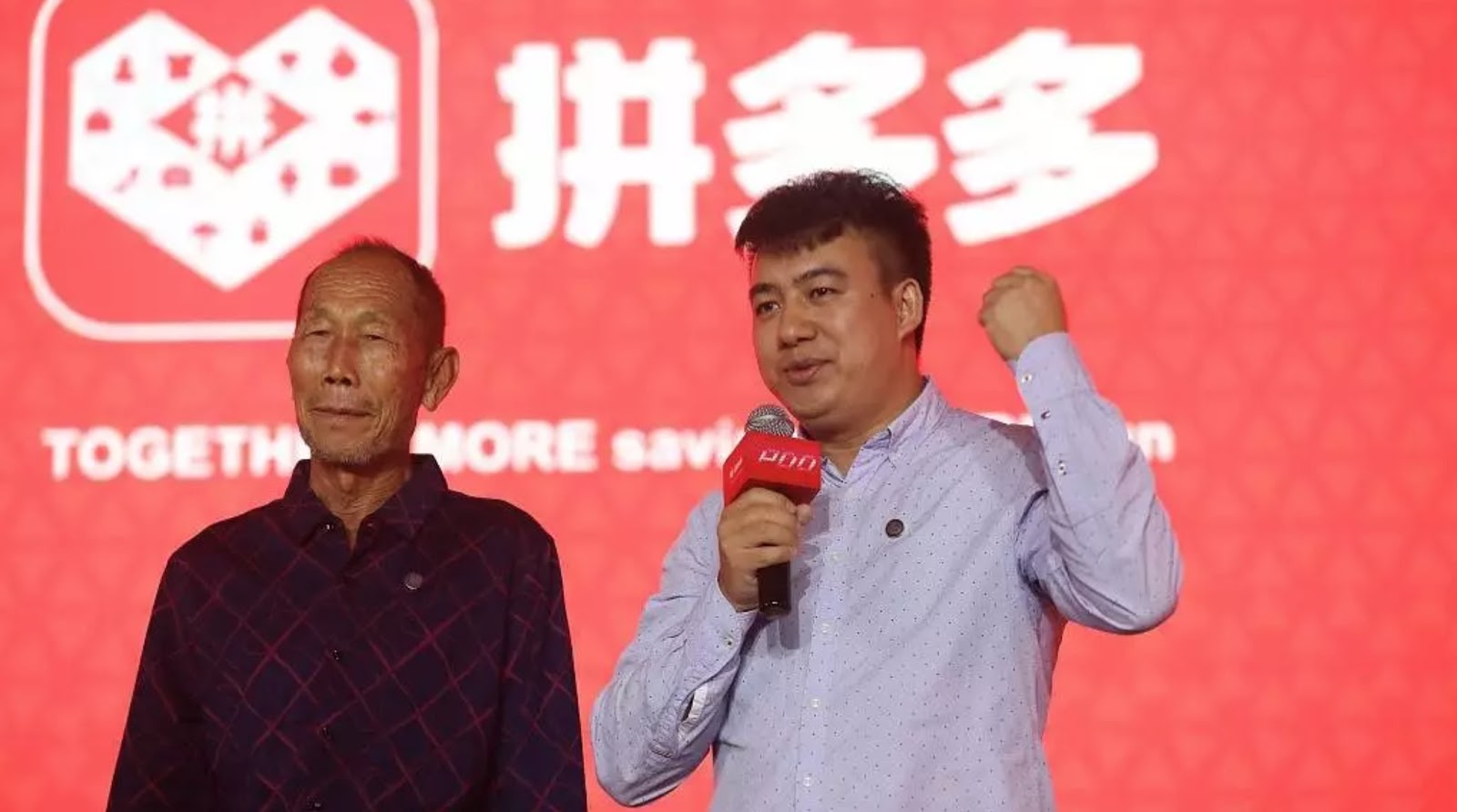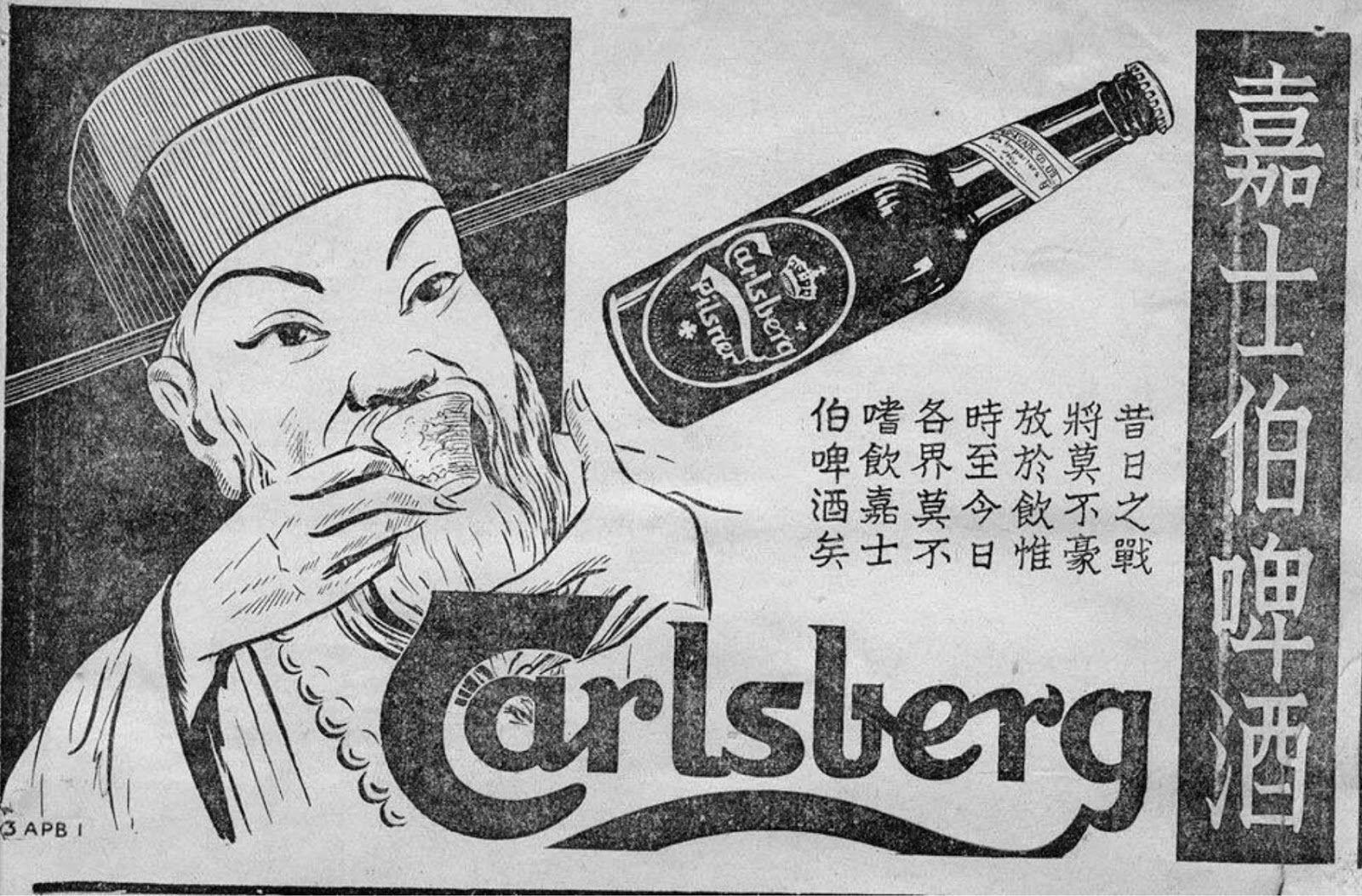Chinese Corner: Fakes, gay fan fiction, and local beer
Chinese Corner: Fakes, gay fan fiction, and local beer

Pinduoduo: Building a business on fake goods
拼夕夕的上市让历史倒退了二十年
By 大卫翁 | 起朱楼宴宾客
July 29, 2018
In only three years since its founding, Pinduoduo (拼多多 pīnduōduō; literally, “piece together more and more”) has become China’s second-most-popular ecommerce company. The company raised $1.63 billion in what Nasdaq itself called a “range-topping U.S. IPO,” giving the company a valuation of $24 billion. Its extraordinary success, however, relies largely on its rather casual stance on the many counterfeit products sold on its platform.
Amid a storm of criticism questioning its deliberate negligence in the combat against fake goods — which have a huge market in China, especially among low-income consumers in rural areas — Pinduoduo’s founder and chief executive, Huang Zheng 黄峥, said, “Counterfeit products are a problem for the whole society. It’s unfair to ask the three-year-old Pinduoduo to solve it.”
The unapologetic response only invited more criticism. In an article titled “Pinduoduo’s listing marks a twenty-year leap back,” WeChat blogger Da Weiweng 大卫翁 argues that the company’s financial triumph will set back the clock on China’s decades-long effort to eliminate knockoffs. “The most annoying thing in the world is that when you want to have a conversation about infringement, he talks about sentimentalism. When you want to have a conversation about laws, he talks about phases of development.”
Da Shewan 大蛇丸 at Huxiu.com asks, “Should we forgive Pinduoduo for the sake of impoverished people?” He criticizes Huang, a former Google employee, for abandoning the internet giant’s principle “Don’t be evil” in his own business. In addition, INSIGHT 视界 has an entertaining article outlining all of the low-quality fake goods it found on Pinduoduo — fake Huawei phones, “Abidas” brand shoes, etc.


‘Guardian girls’ bring gay fan fiction to the mainstream
镇魂女孩:一场颠覆主流的狂欢
By 曾于里 | 凤凰网读书
July 26, 2018
Guardian 镇魂, a Chinese supernatural drama adapted from a novel of the same name, has a massive and obsessive fan base. But many of those fans are unhappy with how the drama depicts the relationship between two main male characters, which is officially defined as “Communist friendship” by the show’s producers. In response, the “Guardian girls,” (镇魂女孩 zhènhúnnǚhái) a term coined to describe the drama’s fans, started to produce GIF sets, fan fiction, and videos portraying their own stories of characters in Guardian.
The wild imagination of the Guardian girls is truly something beautiful in an era where “homosexual content” is banned from online video and live-streaming sites. Their gay fan fiction is a bold defiance against the “mainstream values” upheld by Chinese authorities.
“While many ‘Guardian girls’ acknowledge that the pairing is pure fantasy, their devotion offers a glimpse into the vitality of the subculture in China,” the author argues. “It’s a reminder, too, that many things will not just vanish after you ban them. Instead, they will become increasingly vibrant and fierce.”
Chinese people sometimes call this kind of fiction, which focuses on romantic or sexual relationships between male characters and is written for a female readership, yaoi (やおい), or “boys’ love” (BL) (ボーイズ ラブ). Both terms originated in Japan.


The decline and fall of hometown beer
家乡啤酒兴亡史
By 大象公会
July 30, 2018
Beer lovers in China, I challenge you to name 10 domestic beer brands. You’ll probably start with Yanjing, Tsingtao, Harbin, and Snow. Then maybe you might know one or two local brands, but that’s probably about it.
The history of beer production in China can be traced back to the 1860s. In the aftermath of the Second Opium War, Russians established the country’s first beer factory in Harbin. Customers were mostly Europeans — the northeastern Chinese preferred their strong liquor. In the late 1970s, as more and more local beer factories sprang up across the country, beer became an economical replacement for other alcoholic drinks. When the 1980s came, preferential tax policies for beer production created a boom of domestic beer brands. Largely backed by local governments, these brands were considered “liquid gold” for local governments and entrepreneurs.
The golden era of domestic beer, however, ended with China becoming a member of the World Trade Organization (WTO) in 2001, after which international beer conglomerates like AB InBev and Carlsberg as well as Chinese giants Tsingtao and Snow began acquiring local brands. In many cases, the local brand was discontinued, while the factory converted to produce the more famous brand.


Why you won’t see visually impaired people on tactile pavements in China
中国的盲道上为什么看不见盲人
By 故事FM | 大象公会
August 1, 2018
Tactile pavements are designed to help blind and sight-impaired people navigate cities safely, but in China, they are literally putting the visually disabled in grave danger. Tingting 婷婷, a congenital cataract patient, says she has zero trust in textured tiles because she has no idea “where they lead to.” On a broader level, for people with visual disabilities, these unfriendly urban designs reflect the country’s lack of attention to Tingting’s community.






